Recap: Yolo Food Hub Network’s Barn Warming & Celebration in Esparto, CA
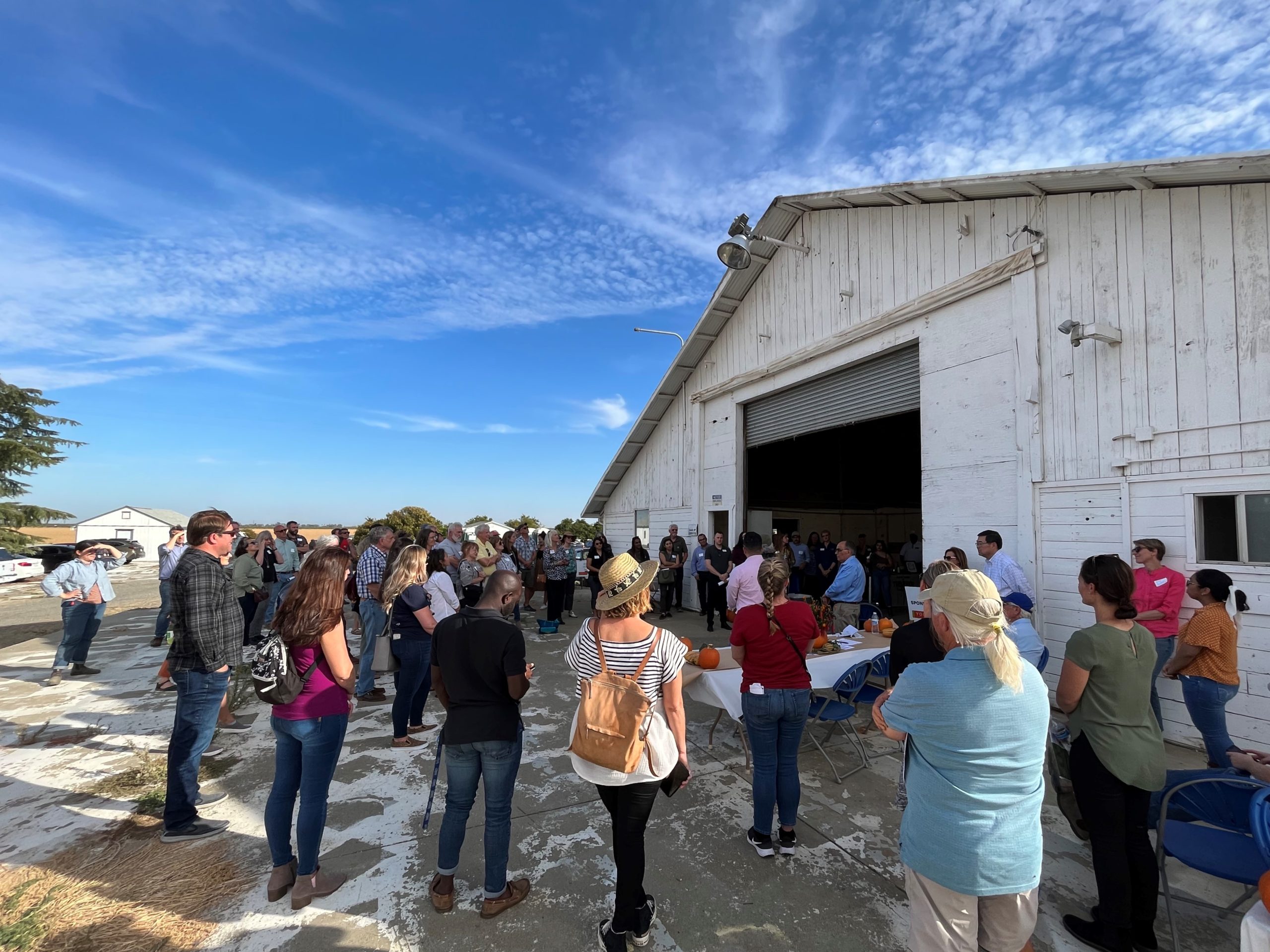
On Friday, October 21st, 2022 – a new home for food and agricultural infrastructure opened its doors to more than 115 people from across the region. The historic 22,000 square-foot Oakdale Barn, located in Esparto, California is over 100 years old, and as the anchor facility for the Yolo Food Hub Network, it will continue to serve the region’s agricultural industry. The Barn facility will be renovated to aggregate, process, store, package, and distribute produce grown in Yolo County and throughout the region. The facility will increase consumer and buyer access to healthy and diverse local foods, improve farmer and market sales, and will strengthen relationships between farmers, institutions, and local communities. It will open new markets for growers and food producers and will enable large institutions, such as hospitals, event centers, and schools to purchase locally grown foods. The barn warming, hosted by the Yolo Food Hub Network and Valley Vision, garnered the support of numerous organizations and representatives across Northern California.
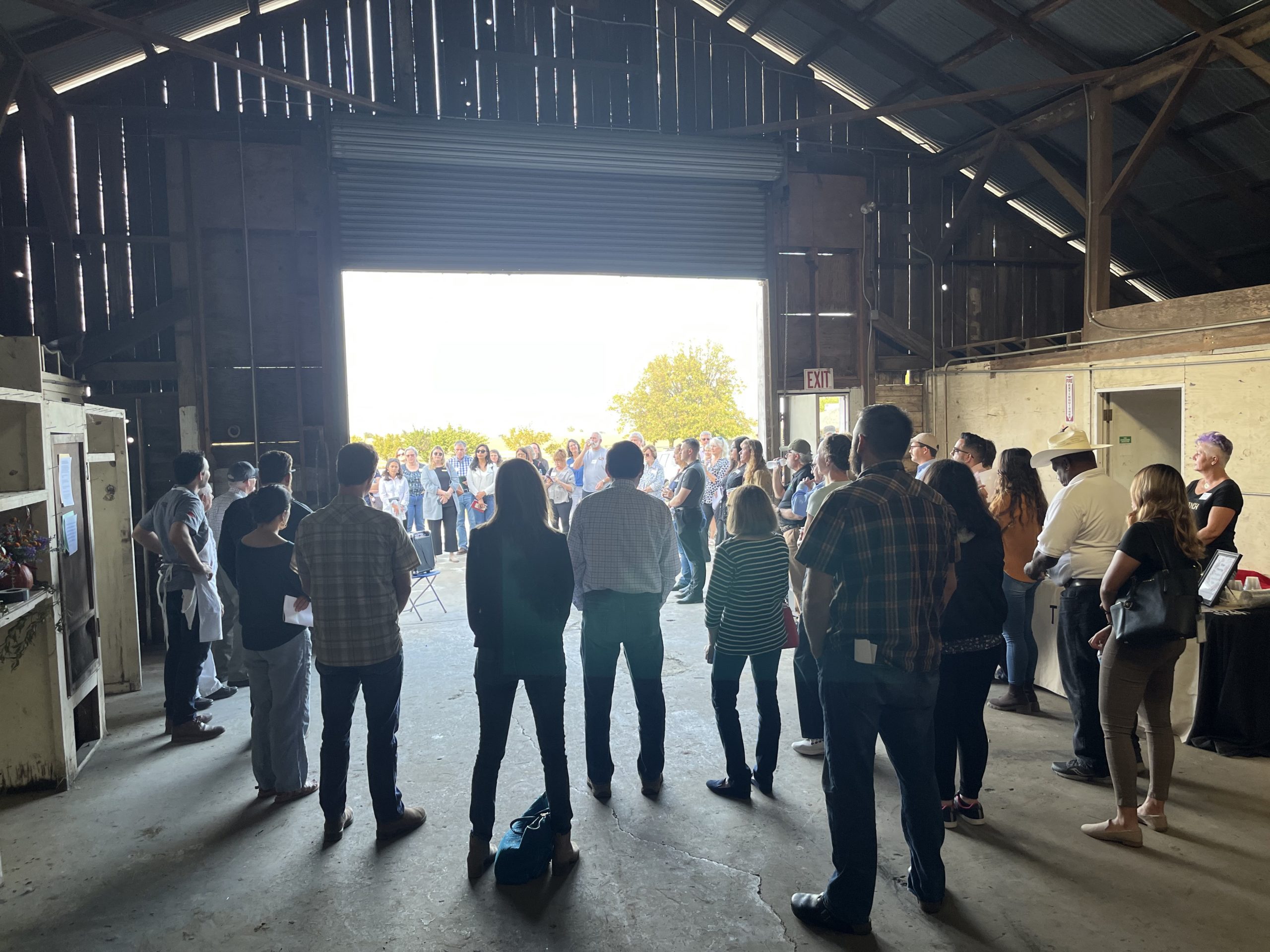
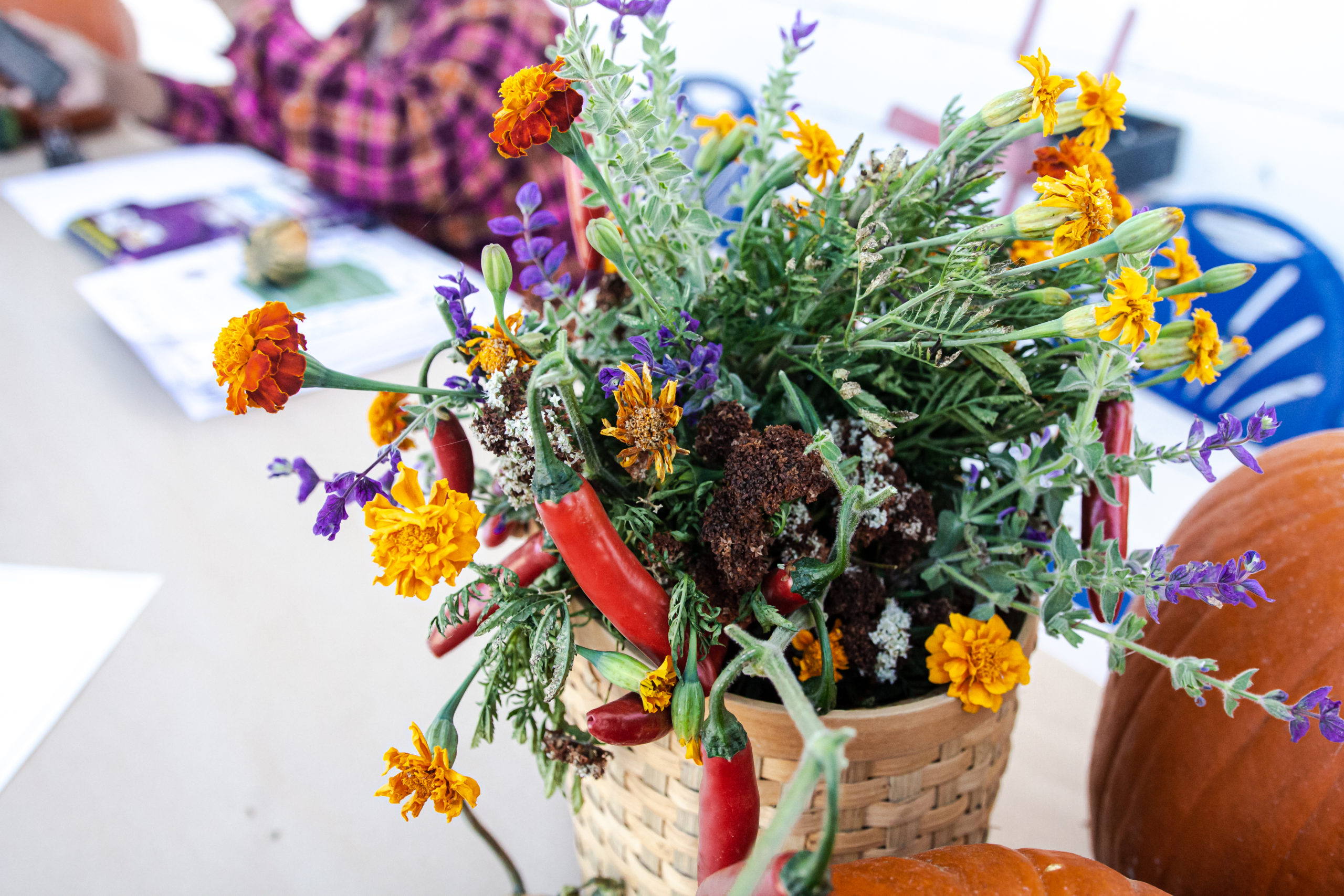
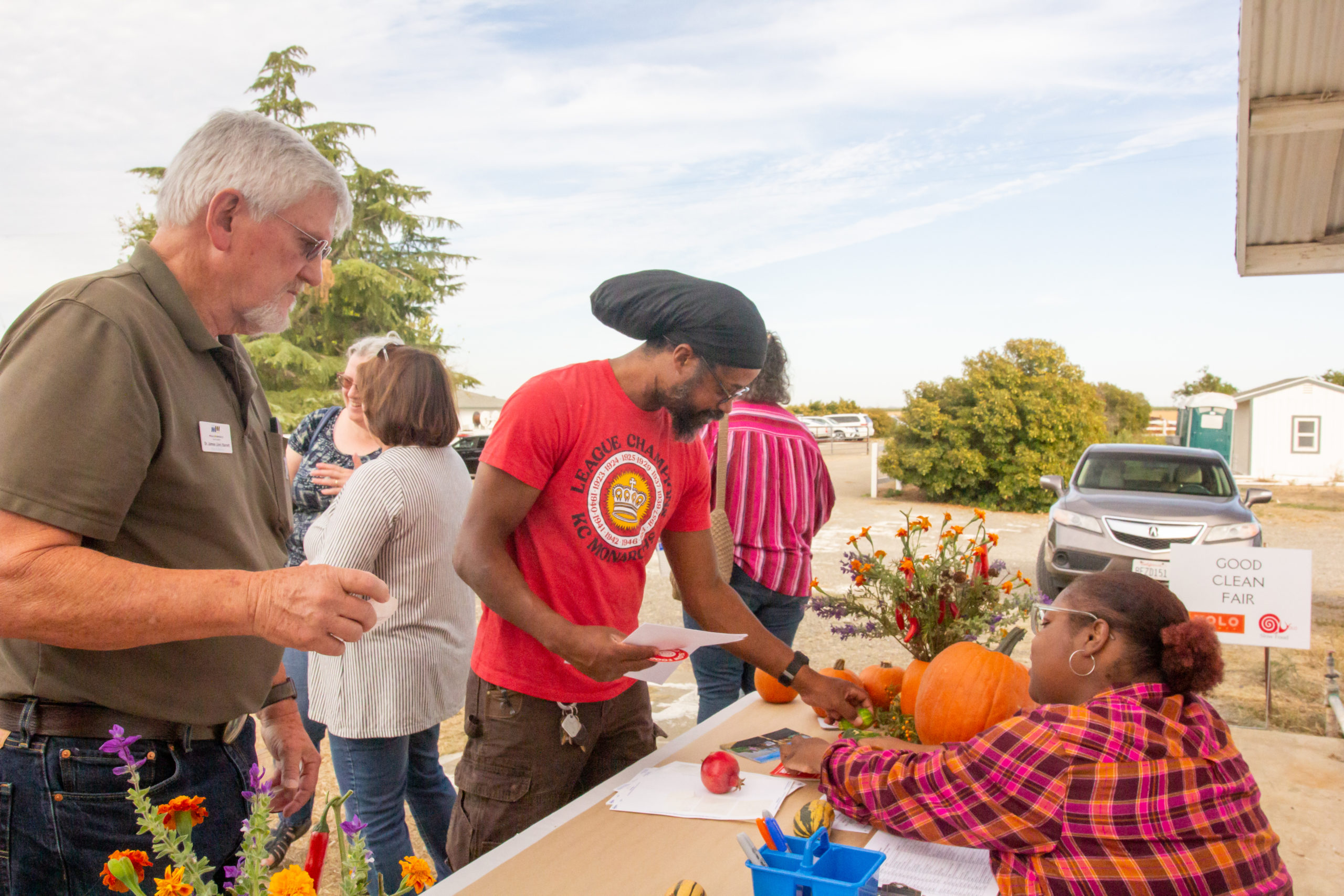
Valley Vision, on behalf of several local partners, was awarded a grant through the Local Food Promotion Program from USDA to support the planning phase of the project. Yolo County committed $2 million of American Rescue Plan funds for the site acquisition.
Food hubs help connect farmers and food entrepreneurs with regional markets and institutional buyers, such as schools, hospitals, and food banks, to access source-identified, locally-grown products. The project’s first phase developed recommendations and a funding strategy to help establish and sustain the new Yolo Food Hub Network and facility. As part of the planning phase of the Yolo Food Hub Network, the project will help farmers receive training on how to reach these institutional buyers, which will buy produce and goods from Yolo Food Hub Network partners.
The Yolo Food Hub Network project team includes New Season Community Development Corporation (NSCDC) – the project developer, Capay Valley Farm Shop (CVFS), Yolo Food Bank, Durst Organic Growers, Spork Food Hub, Esparto Train Station, Hatamiya Group, Kitchen Table Advisors, and Valley Vision as the project manager.
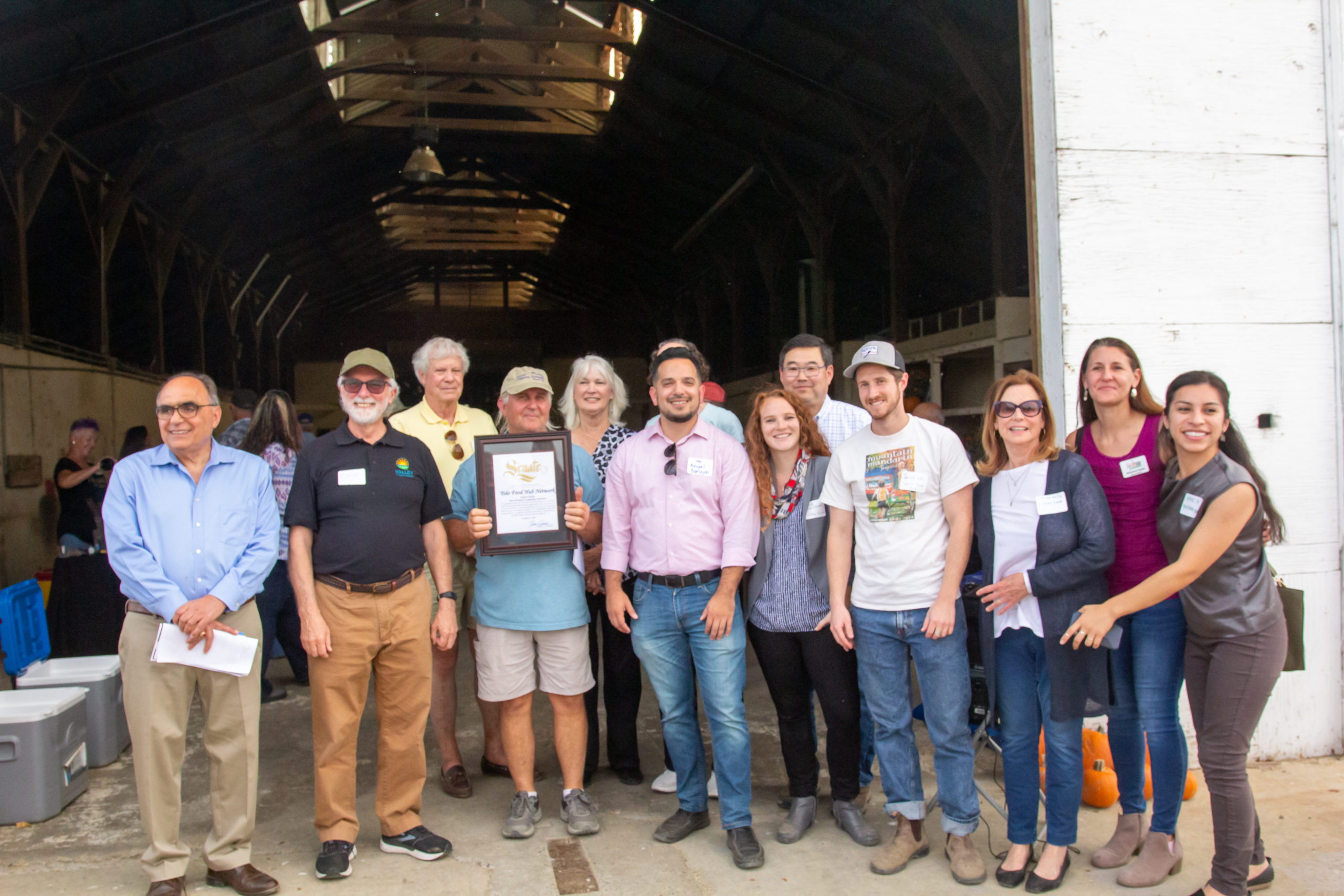
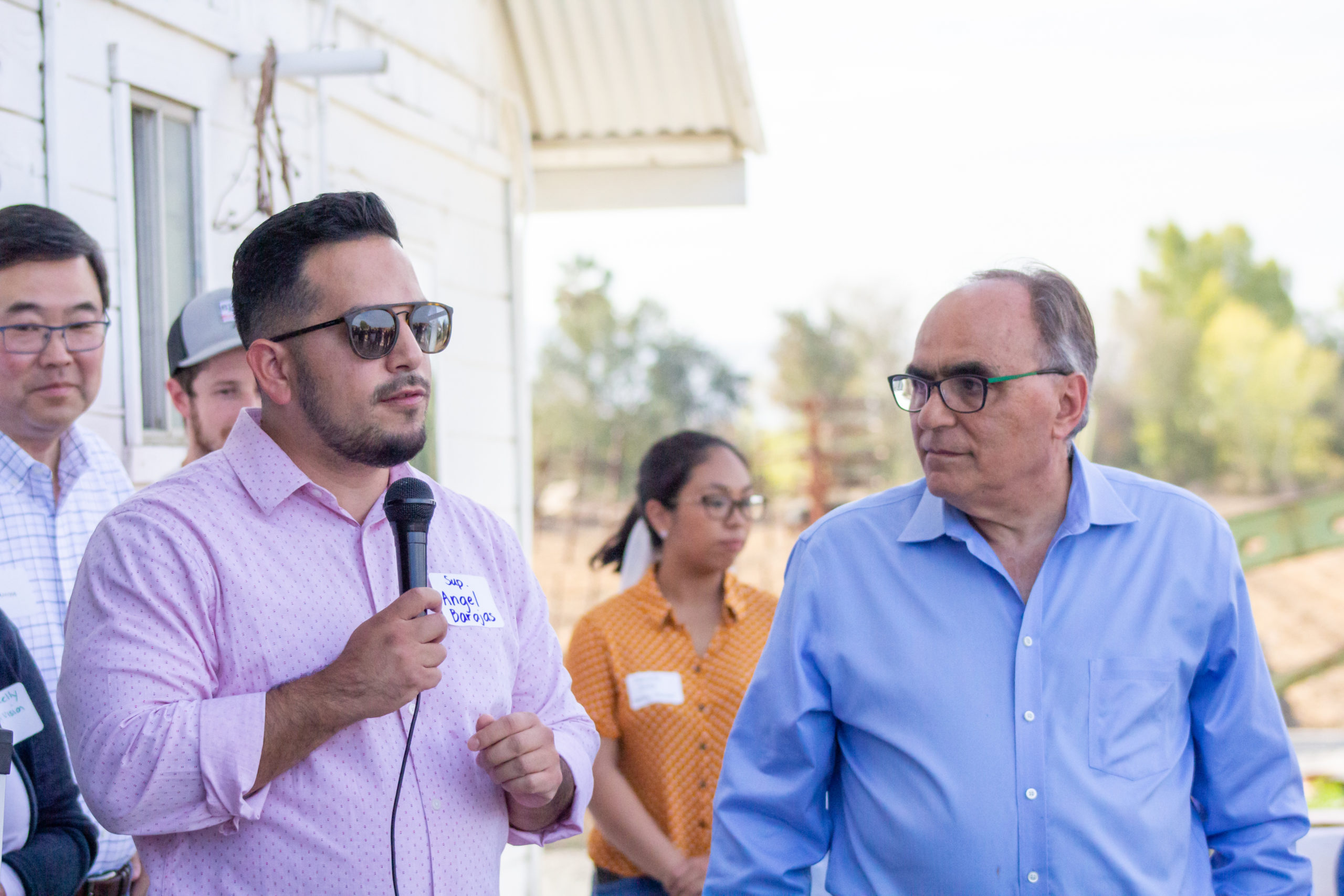
Many elected officials joined the celebration, including California Assemblymember Cecilia Aguiar-Curry District 4, California State Senator Dodd of Senate District 3, (Staff present), as well as Yolo County Supervisors Angel Barajas (Chair), Don Saylor, Jim Provenza, and Woodland City Council members Tom Stallard and Tania Garcia-Cadena.
Also in attendance was James Corless, Executive Director of the Sacramento Area Council of Governments (SACOG). Through SACOG’s Rural Urban Connection Strategy (RUCS), SACOG has supported the planning and feasibility of food hubs throughout the region, including the 2014 food hub feasibility analysis, which served as the foundation for the Yolo Food Hub Network.
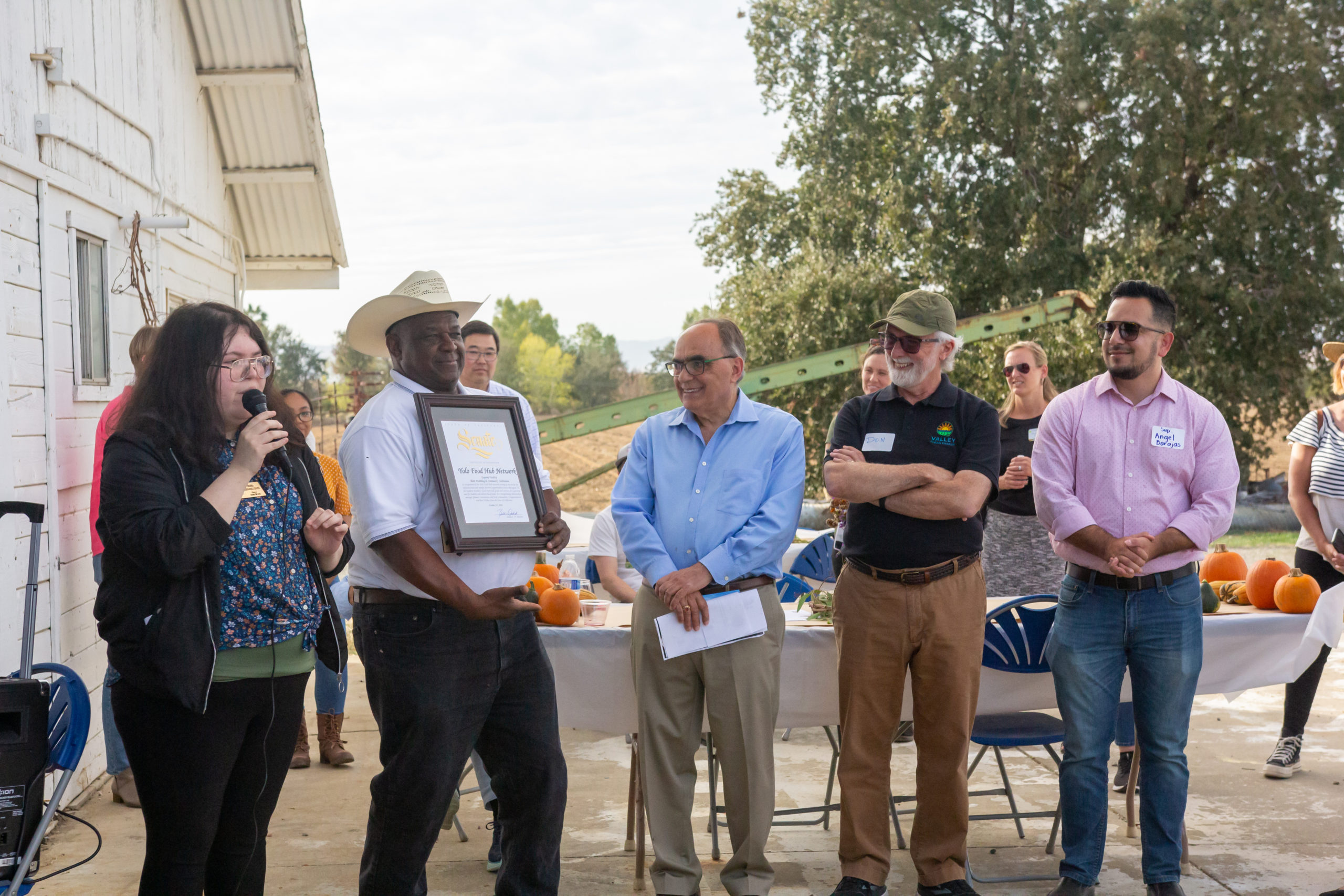
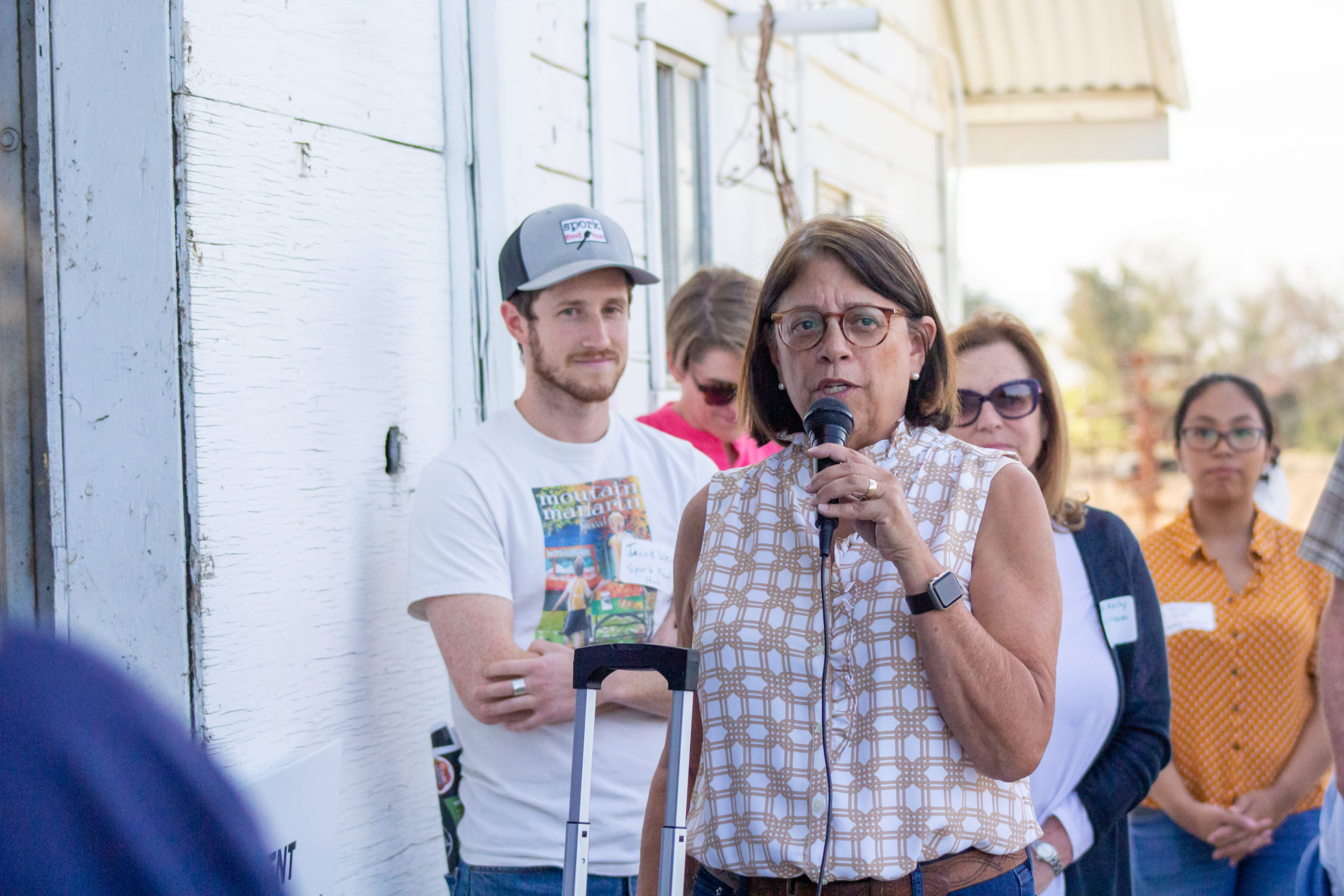
This event would not have been possible without the generous support of Slow Food Yolo, Turkovich Family Wines, and the hard work of Juan Barajas and his team. Slow Food is a global, grassroots organization, founded in 1989 to prevent the disappearance of local food, cultures, and traditions. Slow Food believes food is tied to many other aspects of life, including culture, politics, agriculture, and the environment.
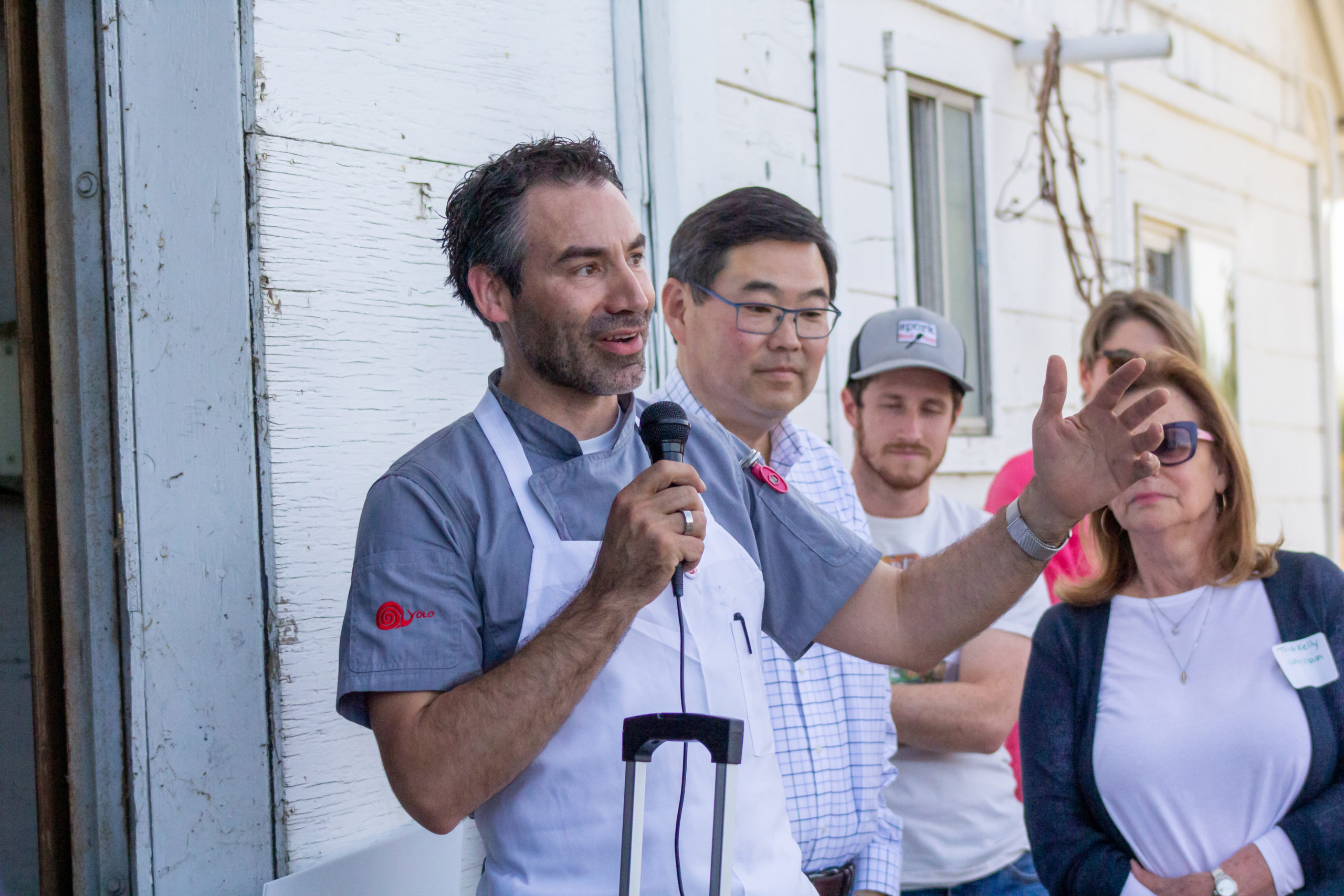
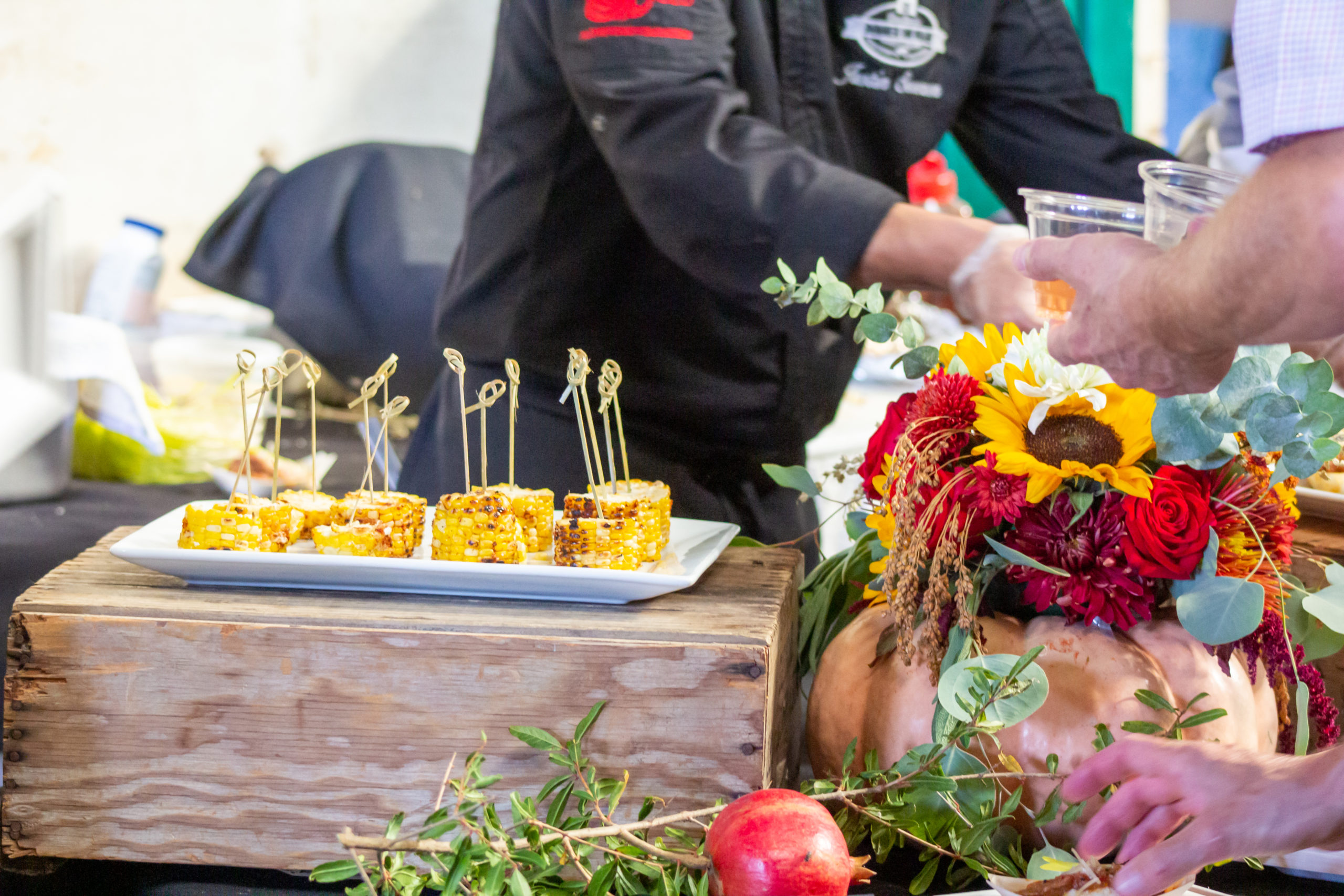

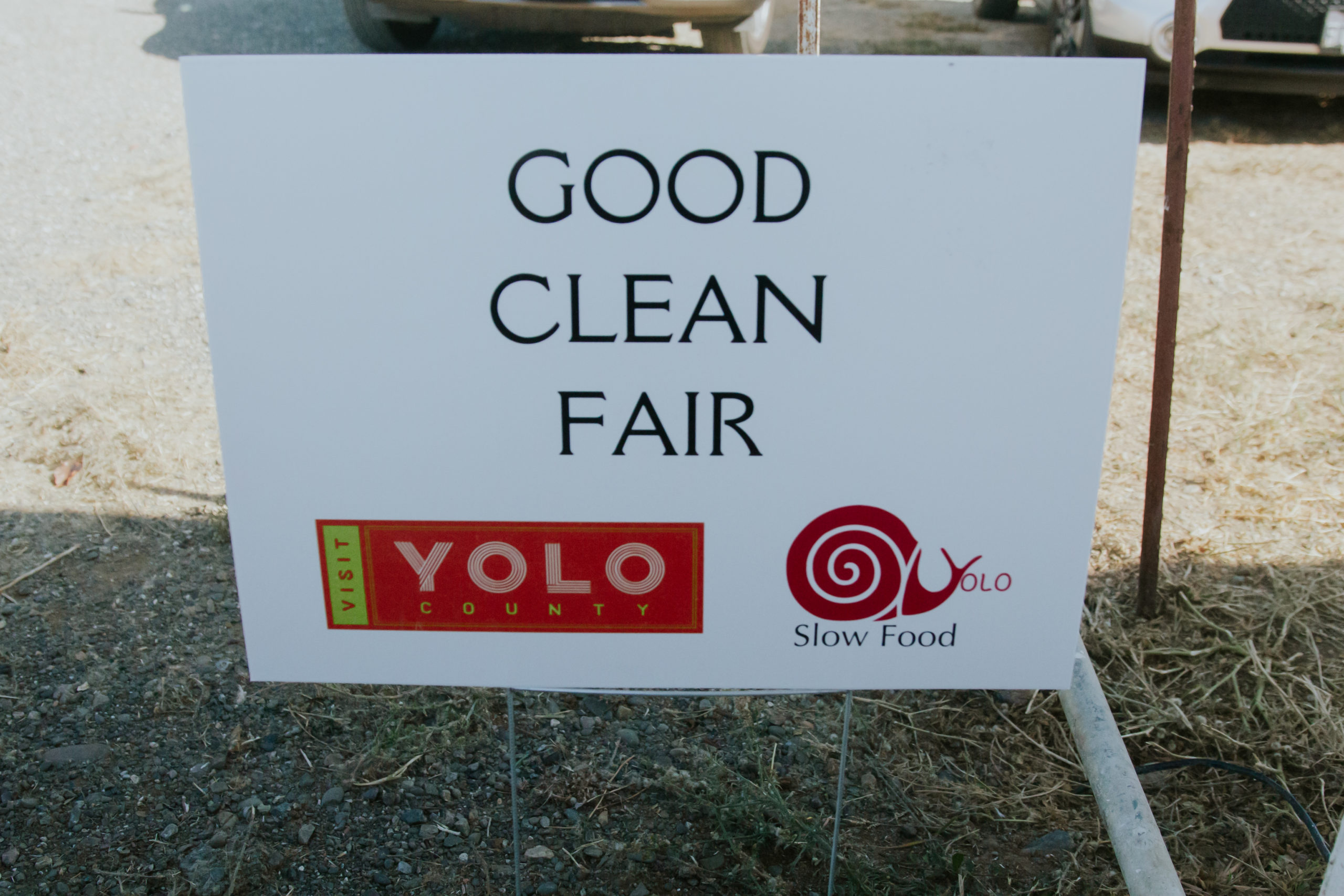
To learn more about the Yolo Food Hub Network, including past webinars and reports, visit: https://www.valleyvision.org/projects/yolo-food-hub.
For questions about Yolo Food Hub Network or if you want to receive future resources and information on the upcoming Food and Agricultural work from Valley Vision, please contact Grace Kaufman at Grace.Kaufman@valleyvision.org to be added to the listerv!
Grace Kaufman is a Valley Vision Project Manager working in the Food and Ag and Clean Economy impact areas
Watch the recap video from the Barn Warming & Celebration below!
Connecting Community and Data: COVID-19 Resilience Poll and Empower Yolo
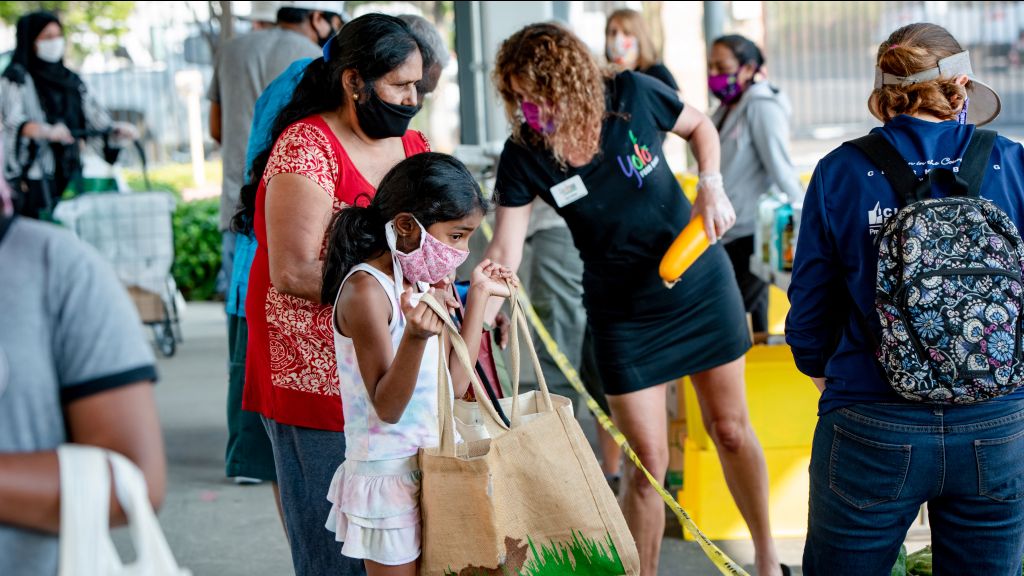
This piece was adapted from an article co-written by Evan Schmidt and Natalia Baltazar, Empower Yolo, published in the Davis Enterprise and the Empower Yolo website on March 6, 2021.
The pandemic has impacted every facet of life over the last year. With people increasingly at home and more isolated, domestic violence and substance use, as well as depression and anxiety are peaking in communities across the nation and our region.
To understand how COVID-19 has impacted our region over the last year, Valley Vision and Capital Public Radio in partnership with the Institute of Social Research at Sacramento State, have conducted The COVID-19 Resilience Poll. This is a public opinion poll that tracks experiences and perspectives on the impacts of COVID-19 in the Capital region, including Yolo, Sacramento, El Dorado, Placer, Yuba and Sutter counties, and is both demographically representative and statistically significant. The poll shows that physical safety at home and mental health effects of COVID-19 are significant and impact people of color, younger people, and women most significantly.
“In Yolo County Empower Yolo continues to support an influx of clients with increased domestic violence cases; clients needing help with basic necessities as well as emergency relief support to help pay rent, utilities and childcare. Over the past year, Empower Yolo’s restraining order clinic has been busier than ever. Many clients are struggling to provide basic needs for their families such as food, clothing and the ability to pay their rent and utilities. The need for childcare so that clients can go back to work is a real problem for working parents. We continue to work with community partners like the Yolo Food Bank to meet the huge rise in food distribution for vulnerable families, seniors, and the immigrant community,” says Lynnette Irlmeier, Executive Director, Empower Yolo.
Overall, a quarter of respondents (25%) from the poll are concerned about being physically or emotionally harmed by other members of their household. About a third of respondents are concerned about alcohol or substance abuse (34%) and the well being of children in the household (32%). As many as 63% of respondents reported feeling depressed at least once in the last seven days, and 82% of respondents reported feeling anxious at least once in the last seven days. These health impacts also continue to reflect different experiences in different communities.
Communities that were already on the margins and struggling due to systemic racism and oppression are hit the hardest due to increased daily stressors like a loss of job, homeschooling, or the inability to provide basic needs like food, clothing or paying rent.
“Most of the clients I work with every day are strong individuals,” says Josie Enriquez, Program Manager, Empower Yolo. “One of our clients was working in a restaurant and was laid off due to COVID. She spent all of her savings, but refused to get help because she is undocumented. Her brother has been helping her pay rent. She is also a survivor of domestic violence,” says Enriquez.
Some families have to rely on older children to help out with childcare when they have to work. “Low-income children are the ones suffering the most; many of the older children need to attend school, but they are also taking care of their siblings,” says, Enriquez.
Families that become sick need extra support to get back on their feet. “One of my clients had COVID and he had to quarantine. The entire family had COVID except for their 5-year-old daughter who was asymptomatic. His daughter was not able to participate in distance learning until we connected him with the local school district for support. He ended up staying home for about two months because the symptoms were severe. He had heart problems and anxiety on top of the regular COVID symptoms. Because he was home during this time to recover, he was able to support his daughter in virtual learning and she made progress. Empower Yolo also referred the family to STEAC, and is assisting the family in completing their tax return,” says Enriquez.
Women and younger respondents experienced more anxiety, depression, and hopelessness compared to other respondents. Eighty-nine percent of women and 93% of respondents aged 18-39 reported anxiety in the last seven days compared to 81% of overall respondents. Seventy-one percent of women and 82% of respondents aged 18-39 reported experiencing depression or hopelessness in the prior seven days compared to 65% of respondents overall.
Empower Yolo’s counseling department has been very busy throughout the pandemic trying to support clients’ various mental health needs. “Therapists are reporting seeing more clients than ever before; we are seeing a much higher rate of clients being depressed or anxious as a result of the pandemic,” says Amy Groven, Director of Clinical Programs, Empower Yolo. Depression and anxiety seem to impede many clients on things like getting a job so they can escape abuse. Because of quarantine clients are more isolated. “Clients are not reaching out to the support they do have as much, and many are experiencing feelings of being helpless or very lonely as they go through the pandemic trying to navigate a new life for themselves,” says Groven.
Respondents’ answers to open-ended questions further demonstrate the ways in which the COVID-19 pandemic is taking its toll. When asked how it is impacting them the most, 49% of respondents felt it most acutely in their routines, including a loss of social connection with community or church, followed by travel cancellations, loss of entertainment, and loss of normal services.
“We have seen younger people coming in with depression and anxiety, which is nothing new. Most of our clients have those diagnoses because of what they have endured. The pandemic has only compounded these issues, making it difficult for youths to socialize and build self esteem because there aren’t those normal things to do that are regularly built into their lives (like school, sports, scouts, etc.) that they gain mastery through. Now we are seeing youths who have endured trauma and have lost those things to cling to that inspire hope and resiliency,” says Groven.
Empower Yolo provides comprehensive services to survivors of domestic violence, sexual assault, human trafficking and child abuse. Core services include a 24-hour crisis line, emergency shelter, legal advocacy, and counseling. Legal services include restraining order clinics throughout Yolo County, family legal clinic, and child support appointments. The emergency safe house continues to support survivors of abuse and their families and pets including running two virtual classrooms for the children residing at the shelter. Throughout the pandemic shelter staff have worked through the challenges of keeping clients and their families safe and healthy while living in a communal living situation. The work of Empower Yolo, and other social services across the region, is critical to meet community needs during this difficult time.
Valley Vision is proud to partner with Empower Yolo to shed light on the challenges and the resilience in our communities and tell the stories behind the number of the COVID-19 Resilience Poll. You can support Empower Yolo and learn more about their services here. Working together, we can rebuild our community to be safer, healthier and more resilient.
Last year, Valley Vision partnered with Capital Public Radio and Sacramento State’s Institute for Social Research to launch the COVID-19 Resilience Poll series consisting of three Polls. These polls are helping us understand and navigate the challenges ahead as we aim to not just understand the impacts and recover from the setbacks of COVID-19, but also reimagine a more equitable, sustainable, and just future.
To keep up with Valley Vision’s work to advance livability in the Sacramento region, subscribe to our Vantage Point email newsletter!
Evan Schmidt is Valley Vision’s Chief Executive Officer.